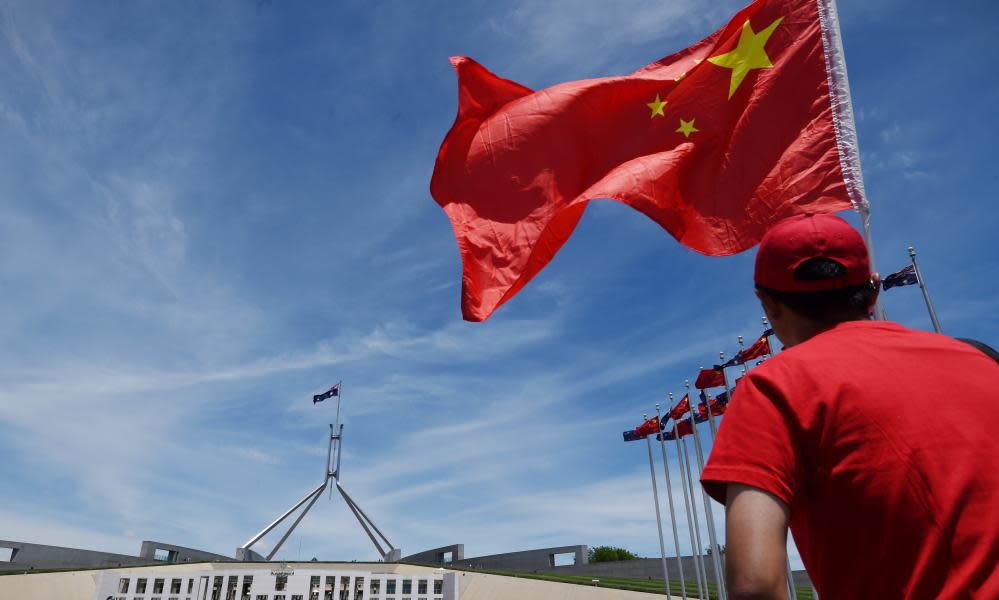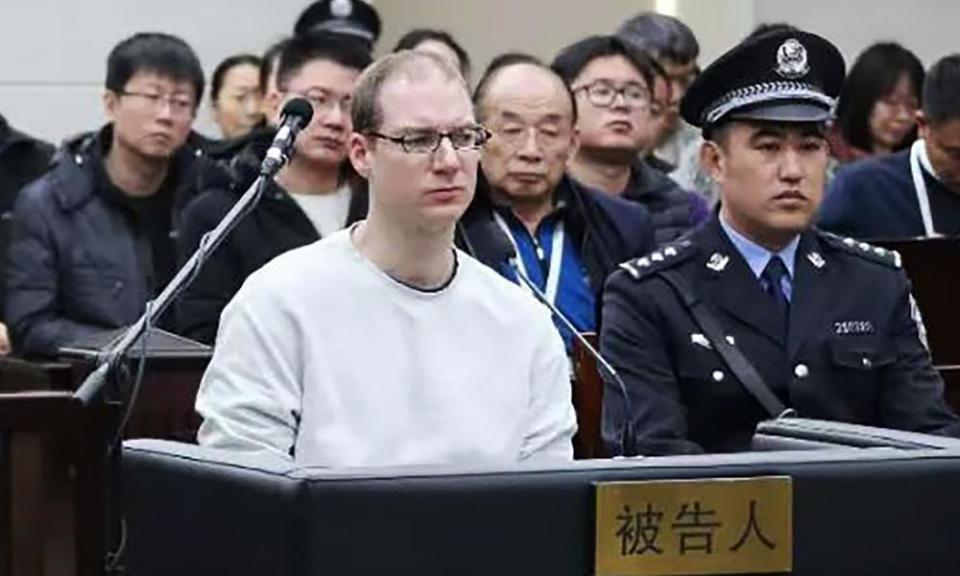‘A rigged deck of cards’: Australian man's death sentence exposes China’s byzantine legal system

On Saturday Chinese officials announced Australian man, Karm Gilespie, had been sentenced to death for attempting to smuggle 7.5kg of methamphetamine through a Chinese airport in December 2013. It was the first time since his arrest the public learned he was detained in China.
It’s almost impossible to know the processes which led to Gilespie being found guilty and sentenced to death. China’s legal system is notoriously opaque, and information on executions is considered a state secret.
China is believed to be responsible for the largest number of executions globally, with Amnesty International estimating that China imposes and carries out death sentences – via lethal injection and shooting – in the thousands every year.
Related: Karm Gilespie's death sentence labelled diplomatic leverage 'deliberately created' by China
Some sentences are suspended if an immediate execution isn’t deemed “necessary”, delivered with a two-year reprieve during which the accused is released. The sentence can be commuted to 25 years or life in prison at the end of the two-year period.

There are 46 different crimes carrying the death penalty in China, a reduction from almost 70.
Chinese court publications suggest the majority have related to murder and drug offences, but the sentences can also be for “non-violent acts which do not meet the threshold of the ‘most serious crimes’ to which the use of the death penalty must be restricted under international law and standards”, Amnesty International said in its most recent report on capital punishment.
There are also major fears of imminent execution for political dissidents who have been disappeared, and the secretive use of the death penalty in crackdown campaigns in places like Xinjiang.
“Such campaigns have typically been associated with the increased use of the death penalty, and scholars have criticised the proceedings used as part of these crackdowns for their lack of fair trial guarantees and the likelihood of ‘wrongful executions’,” said Amnesty.
In 2007 death penalty cases were moved to a higher court and review procedures were introduced. In 2019 new guidances were issued, including the right to legal counsel during reviews and to meet with family before execution.
However China’s judiciary – which routinely has a 99.9% conviction rate – remains widely criticised as opaque and lacking independence from the Chinese Communist party government.
There is virtually no way any detainee, once charged, can win against the Chinese authorities
Peter Humphrey
Only a handful of cases of wrongful convictions, including some wrongful executions, have been publicised.
One senior Chinese lawyer, who requested anonymity, told the Guardian there was a consensus among many elites in the intellectual and legal communities that the country’s legal system had been regressing since Xi Jinping came to power.
He said international research estimated China carried out as much as 90% of the world’s executions, but domestic scholars “dare not write this kind of article”.
Peter Humphrey, a former fraud investigator and former foreign correspondent who was detained in China with his wife from 2013 to 2015, said the Chinese legal system was “a rigged deck of cards”.
“The prosecution will present evidence and can cite witnesses in written prosecution evidence. But there’s no opportunity for defence lawyers to question witnesses and experts in the courtroom,” he told the Guardian.
“There is virtually no way any detainee, once charged, can win against the Chinese authorities.”
The death penalty in drug-related cases “also appeared to play a central role in the middle of political standoffs with some foreign countries”, Amnesty’s report said.
Related: Karm Gilespie: government appeals to China over fate of Australian man sentenced to death
Yaqiu Wang, China researcher for Human Rights Watch, said the death penalty had “long been a political tool of the Chinese Communist party’s to showcase its power over the population and its readiness to eliminate those it deems ‘criminal’.”
Wang said Gilespie’s case and that of Canadian Robert Schellenberg raised serious concerns over whether the death penalty was being “weaponised for the party’s foreign political gain”.

Gilespie’s sentence comes as the Australia-China relationship plummets.
Humphrey said such cases weren’t political to begin with, but that all cases in China become political once charges are laid.
“It is because from the very moment they lay charges, they will never remove them. They cannot admit to making a mistake,” Humphrey said.
“And now another layer of politics has been added on top of that because they have actually consciously and deliberately been made to become part of the diplomatic tug-of-war between China and their own country.”
Additional reporting by Lillian Yang

 Yahoo News
Yahoo News 
